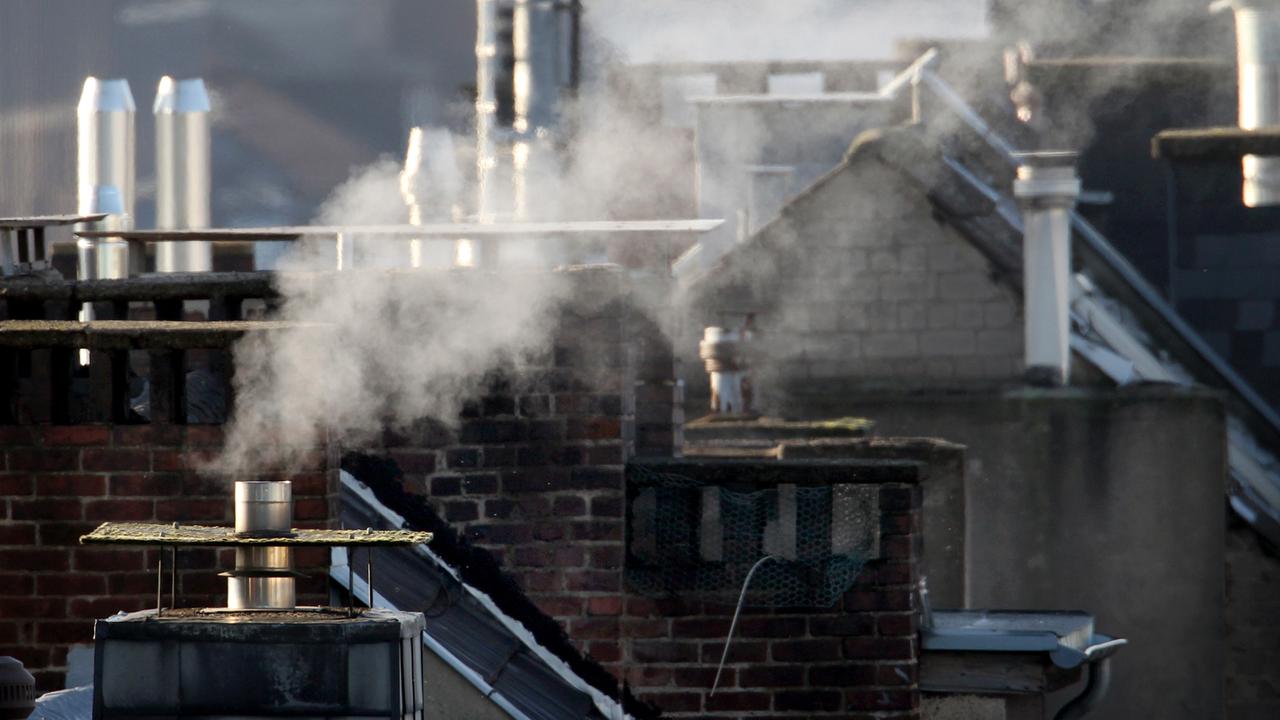The CO2 price will rise by 50 percent in the new year. This makes it more expensive to cause emissions and thus contribute to climate change. The consequences will be felt in many places in everyday life.
Imagine two houses next to each other: the one on the left has been modernized, the owner drives an electric car that is fueled by her own solar system on the roof. The one on the right is nice, but old and not insulated; two SUVs are parked in front of it. From next year at the latest, these residents will look a little jealously at the neighbor to their left. SUV drivers will feel the impact of the increased CO2 price on their household budgets.
The idea goes roughly like this: Anyone who blows a lot of carbon dioxide into the air pays a kind of “pollution tax” that is calculated based on the CO2 price and collected whenever natural gas, liquid gas, petroleum or coal is consumed. With the turn of the year, this price per ton increases from 30 to 45 euros. One ton is roughly the “carbon footprint” one person leaves behind in two months.
Almost five cents per liter more for diesel
The price increase affects, among other things, all people in Germany who drive a car with a combustion engine. The ADAC expects the price of a liter of gasoline to rise by 4.3 cents. A liter of diesel could even be 4.7 cents more expensive.
But that’s not all: Anyone who heats with natural gas will find at least one increased deduction on their next heating bill. The CO2 tax for a four-person household that uses 20,000 kilowatt hours of gas per year will then have risen by 52 euros to 162 euros. According to the comparison portal Verivox, heating oil costs 95 euros more for a sample household.
This alone shows that the two examples with the old and the new house are just the two extremes of a very wide range. In between are the majority of Germans who have neither the money nor the opportunity to optimize their CO2 consumption so much that they would rather live in a well-insulated house with a solar system. Simply because 50 percent of all Germans live on rent and cannot decide whether to switch to a heat pump, it is sometimes difficult for private households to save on the CO2 tax.
Where relief is planned – and what is still missing
The federal government also sees this imbalance and has installed two pillars of support: The first is the distribution of CO2 costs between tenants and landlords. However, this doesn’t happen half the time. The share that the landlord has to cover increases the worse the insulation of the house.
For very efficient houses with an energy standard of EH 55 or better, the landlord does not have to cover any CO2 costs. But if the house’s energy ratings are worse, participation increases – up to 95 percent for so-called “worst performing buildings.” This regulation has been in force since 2023. Tenants can calculate their personal CO2 tax themselves on the Federal Ministry of Economics website.
The other support would be the idea of climate money. The logic goes that if you use little, you not only pay little – ideally you should also benefit from it. It should therefore be possible for all citizens to receive a climate voucher. If you don’t use it, the voucher will be paid out. Thomas Engelke, energy expert at the Federal Association of Consumer Organizations, says: “The mechanism is coming,” after all it is stipulated in the coalition agreement. “But the money is still missing.”
Where the CO2 price is still having an impact
The climate money would have the advantage that those who live in small apartments would benefit from CO2 savings. Or who can’t or don’t want to afford a car. As long as this mechanism does not yet exist, Thomas Engelke is ambivalent about CO2 pricing in its current form. On the one hand, it protects the environment in the medium term. On the other hand, it makes the lives of all consumers more expensive.
Because so far it’s not just refueling and gas heating where the CO2 price is noticeable. It also has an impact wherever companies can pass on the costs to consumers. Transport companies also fill their buses with diesel – just like those who have their company car paid for by their employer. And football stadiums, swimming pools and concert halls are also operated with the same heating oil as the villa in the country. In addition, from 2024, waste incineration plants will also have to pay the CO2 tax if they use waste as fuel.
Garbage prices could rise
The Federal Ministry of Economics says that it is “not to be expected that these costs will have an impact on consumer prices and thus increase inflationary tendencies”. The reason for this is that generating energy from waste is currently “highly profitable”. And yet some waste management companies have already announced price increases for the new year, which could amount to 20 to 30 euros per family household.
And the truth is: These are all just intermediate stages. The increase in the CO2 price was suspended for 2023 due to various crises. But between 2024 and 2027 the price will rise again, to up to 65 euros – before it is transferred to an exchange system. From then on, private CO2 consumption will be priced similarly to what has already applied to companies since 2021 under the Fuel Emissions Trading Act (BEHG). It is currently not possible to predict how much the price will rise. There are institutes that expect a price range between 40 and 350 euros per ton.
Consumer advice center advises to Change of provider
Consumers expect further financial challenges when it comes to energy in 2024. Because it’s not just the CO2 price that’s rising, other factors also come into play: On the one hand, the energy price brake will be lifted at the beginning of the new year. In addition, the VAT levied on the procurement of natural gas will be increased from seven percent to 19 percent. And on top of that, the federal government is canceling 5.5 billion euros that were earmarked for subsidizing transmission network fees.
For Thomas Engelke from the consumer advice center, this only allows one conclusion: energy will become even more expensive in 2024. He therefore advises all electricity, gas and oil customers to look for cheaper contracts while they are possible.
Eva Huber, ARD Berlin, tagesschau, December 31, 2023 6:50 p.m




